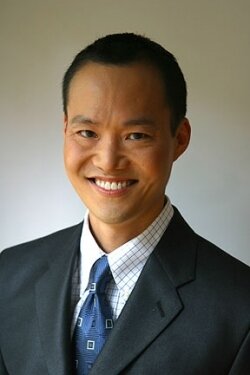Watch it! Fad diets can do more harm than good
Weight Watchers founder Jean Nidetch is 87 years old and still at her target weight of 142 pounds. Eighty-seven and still thin! I joke with everyone that when I turn 70, I’m going to eat the entire world: no exercise except for 12 oz. beer curls, Ben & Jerry’s my middle name, only fried food on my plate, and if it's already fried, I’ll fry it again.
So when I read Matt Sedensky’s September 2 AP article reporting that Nidetch had two cups of Coca-Cola on her walker, Bailey’s Irish Cream beside Chinese take-out in the refrigerator, and Klondike bars in the freezer, I was a little relieved to see she isn’t a stoic.
Do I recommend overweight/obese patients to join Weight Watchers? The answer to this question is, “Aaah— eeer— yeaaaaah– sort of.” I've never been to Weight Watchers or tried Jenny Craig, Nutri-System, or any weight loss program. I have information only from friends and patients who've used them.
Dieticians have a wealth of information on good eating habits and exercise regimens. They offer classes all the time. However, after the "student's" “graduation,” these educational lessons often fly the coop. (“Did my dietician tell me to eat more potato chips and beer while watching football all day?”)
The good thing about a regimented program such as Weight Watchers is that participants have to keep going back for weigh-ins and diet checkups. Weight Watchers offers an easy way to calculate calorie intake– instead of starvation– for weight loss.
Super low-calorie diets screw everything up. Metabolism slows down to adjust to calorie intake that’s too low to prevent the body from withering away. And let’s face it: starvation makes a person super-duper hungry! So when the fad diet is over, the survivor will eat everything in sight– and the slowed metabolism makes it easier to gain more weight back than was just lost. Most people who take diet pills or latch on to fad diets will weigh more in three years than they did before they embarked on the diet.
The question I frequently get from patients is, “How much can I eat a day?” My answer is, “I haven’t a clue. You need a dietician to find out how many calories a day are appropriate for you.”
Also, where the calories come from is important. Calories come from fat, carbohydrates, and proteins, so many of us need the help of a professional to figure these things out.
From articles I’ve read, Weight Watchers is similar to other weight loss programs. The success rate for clients who reach their goal weight and keep it off is about five percent after three years. That’s almost like the success rate for quitting smoking!
Still, about half of all Weight Watchers folks are at least five percent lighter after five years– which to me means that although not all are at the lower goal weight, there are still those who didn’t regain all the weight. Perhaps they would have been heavier in five years if it weren’t for the Weight Watchers.
From clinical observation of my patients who are in Weight Watchers, a lot of them lose weight initially. However, when people leave Weight Watchers, they tend to fall off the wagon.
Exercise and physical activity are the most important factors in weight loss– and moreso in weight maintenance. Yes, diet is vital. But, remember, to lose weight, more calories have to be burned than consumed. Once a person learns an appropriate diet and knows how to stay in shape, it comes down to vigilance, vigilance, vigilance. It’s worth its weight in gold.
~
Dr. Hook cracks a joke or two, but he’s a respected physician with an interesting website, drjohnhong.com. Email him with your questions!
